Table of Contents
ToggleIn today’s fast-paced business world, cost management is the unsung hero that keeps companies afloat. Think of it as a budget-savvy superhero, swooping in to save the day when expenses threaten to spiral out of control. Without it, organizations risk finding themselves in a financial black hole, where profits vanish faster than a magician’s rabbit.
Understanding Cost Management
Cost management represents a systematic approach to planning and controlling costs within an organization. It involves maintaining financial resources efficiently to achieve strategic objectives while ensuring profitability.
Definition of Cost Management
Cost management refers to the process of estimating, budgeting, and controlling costs throughout the life cycle of a project or operation. It encompasses various tasks, such as cost estimation, cost control, and cost allocation. Effective cost management aids in establishing budgets, forecasting future financial performance, and ensuring resources are used optimally. Organizations implement cost management strategies to achieve a comprehensive overview of financial health, allowing for informed decision-making.
Importance of Cost Management
Cost management is essential for stability and growth. By managing expenses carefully, organizations prevent overspending that could lead to financial distress. Understanding cost structures enables insights into potential savings and resource allocation improvements. Prioritizing cost management fosters a culture of efficiency, encouraging teams to identify and eliminate waste. Companies with strong cost management practices are better positioned to respond to market shifts and invest in opportunities. Proper cost management contributes to enhanced profitability and sustainable business operations.
Key Components of Cost Management

Cost management comprises several vital components that together support financial stability and operational efficiency. Understanding each part fosters better decision-making.
Cost Estimation
Cost estimation involves predicting the financial resources required for project completion. Accurate estimates rely on detailed analysis of past projects and current market conditions. Project managers often use various techniques like analogous estimating and bottom-up estimating to derive reliable figures. With precise cost estimates, organizations can set realistic budgets and avoid future overruns. Thus, effective cost estimation lays the groundwork for successful project execution.
Cost Budgeting
Cost budgeting represents the allocation of estimated costs to specific periods or project tasks. This component demands thorough planning to ensure suitability for project goals. Creating a detailed budget helps track expenses and identify spending trends early. Regular updates keep the budget aligned with changing project dynamics. Establishing a robust cost budgeting process empowers teams to maintain financial discipline and control over project expenditures.
Cost Control
Cost control focuses on monitoring and regulating costs during project execution. Collecting data allows project managers to compare actual expenses against the budget. Identifying variances enables timely adjustments to minimize financial risks. Employing tools like performance metrics and variance analysis aids in understanding these discrepancies. Strong cost control measures ensure projects stay on track, enhancing overall efficiency and profitability.
Strategies for Effective Cost Management
Effective cost management strategies ensure organizations stay financially sound while achieving operational efficiency. The following components play a vital role in creating these strategies.
Identifying Cost Drivers
Identifying cost drivers involves pinpointing factors significantly impacting expenses. Organizations analyze historical data to uncover trends and patterns that contribute to costs. Key cost drivers may include labor, materials, overhead, and operational processes. By understanding these drivers, teams can prioritize which areas require oversight. Management can implement targeted strategies to reduce costs where needed. Regularly revisiting cost drivers ensures that organizations remain informed about any changes that could affect financial performance.
Implementing Cost Reduction Techniques
Implementing cost reduction techniques involves adopting various methods to lower expenses without sacrificing quality. Techniques often include process optimization, bulk purchasing, and outsourcing non-core activities. Each method aims to enhance efficiency while minimizing costs. Organizations may encourage employees to suggest cost-saving ideas, fostering a culture of continuous improvement. Investing in technology automation can also streamline operations and reduce labor costs. Moreover, assessing and renegotiating supplier contracts helps secure better pricing terms. These strategies collectively contribute to improved financial outcomes and sustainable operations.
Tools and Techniques in Cost Management
Cost management relies on various tools and techniques to enhance financial performance. Software solutions and analytical tools play vital roles in streamlining processes and providing insights.
Software Solutions
Numerous software solutions assist organizations in managing costs effectively. Tools like Microsoft Project and Oracle Primavera help in planning, scheduling, and executing projects within budget constraints. These applications provide functionalities for cost estimation and resource allocation, making it easier to track expenses in real time. Additionally, ERP systems like SAP and NetSuite integrate financial, operational, and project data, promoting cohesive management of costs across different departments. Companies gain clear visibility into financial performance when utilizing these platforms, enabling informed decision-making.
Analytical Tools
Analytical tools offer essential insights into cost management. Business intelligence software like Tableau and Power BI helps organizations visualize financial data, identifying trends and patterns affecting costs. Predictive analytics also enables forecasting future expenses based on historical data, assisting in effective budget planning. Performance metrics, such as cost variance analysis, provide feedback on actual spending compared to budgets. These analytical approaches empower managers to assess and adjust costs proactively, ensuring resources are utilized efficiently.
Effective cost management is essential for any organization aiming to thrive in a competitive landscape. By prioritizing strategies that enhance financial stability and operational efficiency, companies can navigate market fluctuations with confidence. The integration of advanced tools and techniques further empowers managers to maintain control over expenses while fostering a culture of continuous improvement.
With a keen focus on cost drivers and proactive adjustments, businesses can not only reduce unnecessary expenditures but also position themselves for sustainable growth. Embracing a disciplined approach to cost management ultimately leads to improved profitability and a stronger foundation for future success.



